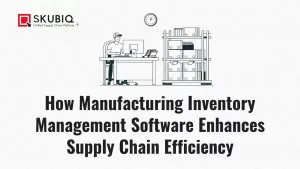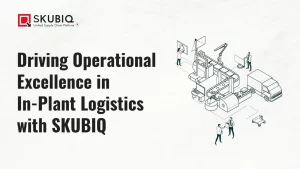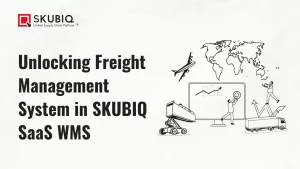In the fast-paced world of warehouse management, the key to success lies in how to manage warehouse employees efficiently. A well-organized warehouse is crucial for maintaining a smooth supply chain and meeting customer demands. The role of a warehouse manager is pivotal in ensuring that all processes run seamlessly, and this involves effective employee management. In this article, we will delve into the intricacies of how to manage warehouse employees and the significant role that a warehouse manager plays in this process.
Understanding the Role of a Warehouse Manager
A warehouse manager is the linchpin of a well-functioning warehouse. Their responsibilities extend beyond merely overseeing the inventory. A skilled warehouse manager understands the importance of human resources and how to effectively manage warehouse employees.
How to Manage Warehouse Employees
1. Clear Communication
Effective communication is the cornerstone of successful employee management. Warehouse managers must establish clear channels of communication to convey expectations, updates, and changes efficiently. Regular team meetings and open-door policies foster a culture of transparency and collaboration.
2. Proper Training Programs
Investing in comprehensive training programs is essential to equip warehouse employees with the necessary skills. From using specialized equipment to understanding inventory management software, employees need to be well-versed in their roles. Regular training sessions not only enhance employee competence but also boost morale.
3. Task Management System
Implementing a robust task management system streamlines daily operations. This system ensures that each employee understands their responsibilities and deadlines, preventing confusion and delays. A well-organized workflow contributes to increased productivity and a more efficient warehouse.
4. Employee Recognition Programs
Recognizing and rewarding exemplary performance boosts employee morale. Warehouse managers should implement employee recognition programs to acknowledge hard work and dedication. This creates a positive work environment and motivates employees to consistently perform at their best.
5. Regular Feedback Sessions
Constructive feedback is invaluable in employee development. Warehouse managers should conduct regular feedback sessions to discuss performance, address concerns, and set goals for improvement. This two-way communication fosters a sense of accountability and continuous improvement.
The Role of Technology in Employee Management
In the digital age, leveraging technology is essential for effective warehouse management. One such technological advancement is the use of inventory management software.
Inventory Management Software
Modern warehouses handle vast amounts of inventory, making manual tracking a daunting task. Inventory management software automates this process, providing real-time data on stock levels, order fulfillment, and product movements. Integrating such software into warehouse operations enhances accuracy and efficiency.
Warehouse managers can use inventory management software to optimize stock levels, forecast demand, and identify slow-moving items. This proactive approach ensures that the warehouse operates at peak efficiency, minimizing the risk of stockouts or overstock situations.
Combining Technologies for Comprehensive Solutions
While inventory management software addresses one aspect of warehouse management, integrating a comprehensive task management system further enhances overall efficiency.
Integrated Task Management System
An integrated task management system streamlines the coordination of various warehouse tasks. From order processing to shipping, this system provides a centralized platform for assigning, tracking, and completing tasks. Warehouse managers can allocate resources effectively, ensuring that every aspect of warehouse operations is synchronized.
This integrated approach eliminates bottlenecks in the workflow, leading to faster order fulfillment and improved customer satisfaction. The task management system also allows for real-time monitoring, enabling warehouse managers to identify and address issues promptly.
Conclusion
Effectively managing warehouse employees is a multifaceted task that requires a combination of interpersonal skills, strategic planning, and technological integration. The role of a warehouse manager is paramount in ensuring the seamless functioning of a warehouse. By embracing clear communication, training programs, and implementing advanced technologies such as inventory management software and a task management system, warehouse managers can enhance efficiency, reduce errors, and create a positive work environment.
In conclusion, the simple solution to managing warehouse employees effectively lies in a holistic approach that combines human-centric strategies with cutting-edge technologies. As the landscape of warehouse management continues to evolve, staying abreast of these innovations is crucial for success in this dynamic industry.
Frequently Asked Questions (FAQs) - Managing Warehouse Employees
A warehouse manager plays a pivotal role in overseeing and coordinating warehouse operations, including effective management of warehouse employees. Their responsibilities encompass clear communication, training programs, and implementing systems to optimize workflow.
Clear communication is essential for setting expectations, providing updates, and fostering a transparent work environment. Regular team meetings, open-door policies, and clearly defined communication channels contribute to a cohesive and collaborative warehouse team.
Task management systems streamline daily operations by providing a centralized platform for assigning, tracking, and completing tasks. This ensures that each employee understands their responsibilities and deadlines, contributing to increased productivity and efficiency in the warehouse.
Employee recognition programs acknowledge and reward exemplary performance, boosting employee morale and creating a positive work environment. Recognized employees are more likely to be motivated and committed, leading to increased overall productivity in the warehouse.
Inventory management software automates the tracking of stock levels, order fulfillment, and product movements in real-time. This technology optimizes stock levels, forecasts demand, and enhances accuracy, contributing to efficient warehouse operations.



